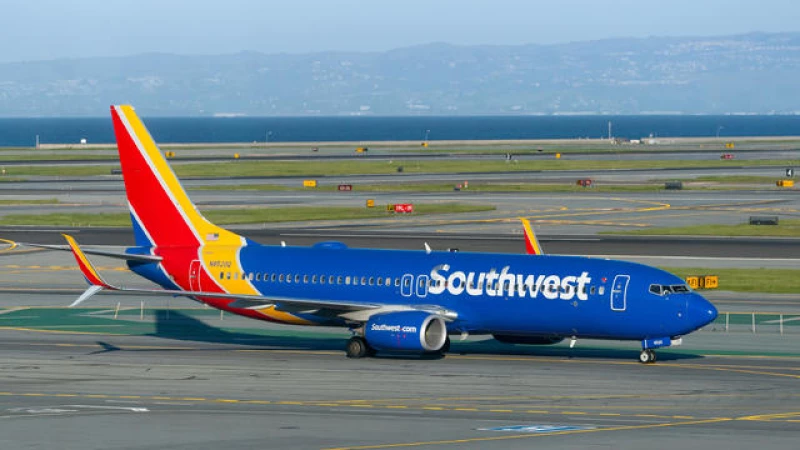Southwest Airlines Adjusts Operations Due to Boeing Aircraft Delivery Delays
Amidst Boeing aircraft delivery delays, Southwest Airlines announces the suspension of service at select airports in the U.S. as part of its growth slowdown.
The airline disclosed that it will only receive 20 out of the 46 Boeing 737 Max 8 planes initially planned for 2024.
"Achieving our financial goals is an immediate imperative. The recent news from Boeing regarding further aircraft delivery delays presents significant challenges for both 2024 and 2025. We are reacting and replanning quickly to mitigate the operational and financial impacts while maintaining dependable and reliable flight schedules for our customers," explained Southwest CEO Bob Jordan during the company's first quarter earnings call on Thursday.
To counter the effects of the situation, Southwest is implementing cost-cutting measures, including withdrawing from "underperforming markets."
Service at the following airports will cease on August 4:
- George Bush International Airport in Houston
- Bellingham International Airport in Bellingham, Washington
- Syracuse Hancock International Airport in Syracuse, New York
- Cozumel International Airport on Cozumel island, Mexico
The airline will also implement significant changes to its operations in various markets, including reducing the number of flights at Hartsfield-Jackson Atlanta International Airport and Chicago O'Hare International Airport.
Airlines commonly withdraw from regional airports and trim unprofitable or less-profitable routes to lower labor costs or increase capacity on more lucrative routes to boost revenue.
In a recent announcement, JetBlue revealed plans to cut unprofitable routes and exit two U.S. cities following a failed $3.8 billion bid for Spirit Airlines earlier in the year. JetBlue attributed the cuts to limited aircraft availability, enabling the airline to focus on operating more flights on its busiest routes.
Furthermore, Southwest Airlines announced plans on Thursday to explore enhancements to its aircraft cabins and seating options. The budget carrier does not impose seat-selection fees on customers, a practice that has become a major revenue stream for its competitors.







